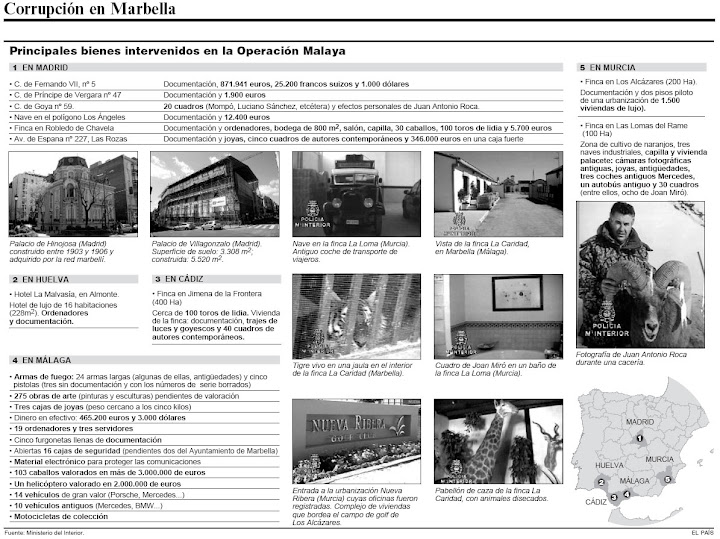ONLY months after they tightened the rules for the euro, Europeans are again confronting a question posed a decade ago: Is their rule book in fact a little stupid? In 2002, Romano Prodi, then the president of the European Commission, provoked widespread criticism by using the word “stupid” to describe the Stability and Growth Pact, a set of rules intended to maintain the stability of the euro zone by imposing fiscal discipline on member states. Now Spain is pressing for leniency, using more polite language but a similar argument. Deep in recession, Spain is not close to hitting European Union target dates for cutting its budget deficit to acceptable levels. And that, according to the logic of the new rules, ought to begin a process leading to the imposition of fines against Spain’s government. Euro zone finance ministers are set to discuss Spain’s economic situation Thursday in Brussels. It may come up again when European heads of government take part in a two-day meeting to discuss policies intended to increase economic growth. The new center-right Spanish government led by Prime Minister Mariano Rajoy faces a severe economic squeeze. To hit the European Union’s deficit target it would need to impose another austerity package that, according to estimates, would be more than double the 15 billion euros, or $20 billion, of tax increases and spending cuts already agreed to this year. And Spain is entering its second recession since the sovereign debt crisis began and is struggling with an unemployment rate of nearly 23 percent. But the European authorities face a dilemma, too. The Spanish case illustrates a design flaw in the euro rule book — fining a nation in financial trouble can only make matters worse. Even insisting on more austerity could drive Spain over the edge. Inaction, however, could threaten the credibility of the revised rule book when financial markets remain nervous. While the European Commission, the executive body of the 27-nation European Union, has issued tough warnings to some smaller nations, including Hungary — which is outside the euro zone and subject to different sanctions — Spain is the first large country to run afoul of the strengthened rules. The issue is particularly delicate because when France and Germany violated the original pact in 2003 by running up excessive deficits, the agreement was softened. And some policy makers have said that is one reason euro nations did not weather the financial crisis better. Last year the pact was strengthened to make sanctions more difficult to avoid and to make overall debt levels a bigger factor in determining whether penalties should be applied. Jean Pisani-Ferry, director of Bruegel, an economic research institute in Brussels, said Spain posed a substantial test for the new rules. “It is big because it is a bigger country and this is a tough case: how to reconcile fiscal discipline and economic realism,” he said. “Spain is facing a true recession,” he added, with estimates that its economy will continue to contract. “The commission is forecasting minus 1 percent, the Bank of Spain minus 1.5 percent, and there is no shortage of people forecasting even less. I think they should be careful at a time when they are embarking on a large number of reforms.” But Mr. Pisani-Ferry added that the European Commission had latitude in determining whether a country had violated the new rules. The commission will recommend how to proceed, and, if it has determined that Spain has tried its best to meet the target dates but has been blown off course by events outside its control, the European Commission can propose new target dates. Under the Stability and Growth Pact, European nations are supposed to keep their budget deficits below 3 percent of gross domestic product and their debt levels below 60 percent of G.D.P. Spain’s target was a deficit of 6 percent of G.D.P. in 2011, 4.4 percent in 2012 and 3 percent in 2013. On Monday, though, the Spanish government said it ended 2011 with a deficit of 8.5 percent of G.D.P. Speaking in Brussels on Wednesday, the president of the European Commission, José Manuel Barroso, said he was awaiting more information from Madrid, and the new Spanish budget, due to be presented in March. “The reality regarding Spain is that we do not yet have a full picture of Spain’s fiscal slippage last year and the reasons for that slippage,” Mr. Barroso said. “Only then, when we receive the concrete information, we’ll be able to take a position.” He expressed confidence that the new budget “will be fully in line with the Stability and Growth Pact rules.” The national government in Madrid has blamed Spain’s regional governments, estimating that they accounted for about two-thirds of the slippage last year. The regions ended 2011 with an average deficit equivalent to 2.94 percent of G.D.P., compared with a target of 1.3 percent. Spain is one of at least 23 European Union nations in violation of the bloc’s rules, subject to what is known as “excessive deficit procedure,” with closer monitoring and clear targets. But it was already given the benefit of the doubt in December 2009, when it was allowed an extra year to reach the 3 percent deficit level. All of which makes for a difficult decision for the commission, which must walk a tightrope between squeezing Spain’s economy too much and undermining the new rules. Mr. Pisani-Ferry said he believed that it should worry more about the first of those factors than the second. “Credibility rests also on the fact that what you do is economically sensible,” he said.









 08:16
08:16

 Posted in:
Posted in: 





